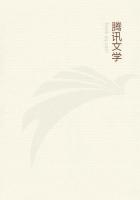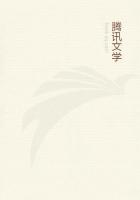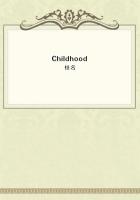The mental condition of savages the basis of the irrational element in myth--Characteristics of that condition: (1) Confusion of all things in an equality of presumed animation and intelligence;(2) Belief in sorcery; (3) Spiritualism; (4) Curiosity; (5) Easy credulity and mental indolence--The curiosity is satisfied, thanks to the credulity, by myths in answer to all inquiries--Evidence for this--Mr. Tylor's opinion--Mr. Im Thurn--Jesuit missionaries'
Relations--Examples of confusion between men, plants, beasts and other natural objects--Reports of travellers--Evidence from institution of totemism--Definition of totemism--Totemism in Australia, Africa, America, the Oceanic Islands, India, North Asia--Conclusions: Totemism being found so widely distributed, is a proof of the existence of that savage mental condition in which no line is drawn between men and the other things in the world. This confusion is one of the characteristics of myth in all races.
We set out to discover a stage of human intellectual development which would necessarily produce the essential elements of myth. We think we have found that stage in the condition of savagery. We now proceed to array the evidence for the mental processes of savages. We intend to demonstrate the existence in practical savage life of the ideas which most surprise us when we find them in civilised sacred legends.
For the purposes of this inquiry, it is enough to select a few special peculiarities of savage thought.
1. First we have that nebulous and confused frame of mind to which all things, animate or inanimate, human, animal, vegetable, or inorganic, seem on the same level of life, passion and reason. The savage, at all events when myth-******, draws no hard and fast line between himself and the things in the world. He regards himself as literally akin to animals and plants and heavenly bodies; he attributes *** and procreative powers even to stones and rocks, and he assigns human speech and human feelings to sun and moon and stars and wind, no less than to beasts, birds and fishes.
"So fasst auch das Alterthum ihren Unterschied von den Menschen ganz anders als die spatere Zeit."--Grimm, quoted by Liebrecht, Zur Volkskunde, p. 17.
2. The second point to note in savage opinion is the belief in magic and sorcery. The world and all the things in it being vaguely conceived of as sensible and rational, obey the commands of certain members of the tribe, chiefs, jugglers, conjurors, or what you will. Rocks open at their order, rivers dry up, animals are their servants and hold converse with them. These magicians cause or heal diseases, and can command even the weather, bringing rain or thunder or sunshine at their will. There are few supernatural attributes of "cloud-compelling Zeus" or of Apollo that are not freely assigned to the tribal conjuror. By virtue, doubtless, of the community of nature between man and the things in the world, the conjuror (like Zeus or Indra) can assume at will the shape of any animal, or can metamorphose his neighbours or enemies into animal forms.
See Roth in North-West Central Queensland Aborigines, chapter xii., 1897.
3. Another peculiarity of savage belief naturally connects itself with that which has just been described. The savage has very strong ideas about the persistent existence of the souls of the dead. They retain much of their old nature, but are often more malignant after death than they had been during life. They are frequently at the beck and call of the conjuror, whom they aid with their advice and with their magical power. By virtue of the close connection already spoken of between man and the animals, the souls of the dead are not rarely supposed to migrate into the bodies of beasts, or to revert to the condition of that species of creatures with which each tribe supposes itself to be related by ties of kinship or friendship. With the usual inconsistency of mythical belief, the souls of the dead are spoken of, at other times, as if they inhabited a spiritual world, sometimes a paradise of flowers, sometimes a gloomy place, which mortal men may visit, but whence no one can escape who has tasted of the food of the ghosts.
4. In connection with spirits a far-reaching savage philosophy prevails. It is not unusual to assign a ghost to all objects, animate or inanimate, and the spirit or strength of a man is frequently regarded as something separable, capable of being located in an external object, or something with a definite locality in the body. A man's strength and spirit may reside in his kidney fat, in his heart, in a lock of his hair, or may even be stored by him in some separate receptacle. Very frequently a man is held capable of detaching his soul from his body, and letting it roam about on his business, sometimes in the form of a bird or other animal.
5. Many minor savage beliefs might be named, such as the common faith in friendly or protecting animals, and the notion that "natural deaths" (as we call them) are always UNNATURAL, that death is always caused by some hostile spirit or conjuror. From this opinion comes the myth that man is naturally not subject to death:
that death was somehow introduced into the world by a mistake or misdeed is a corollary. (See "Myths of the Origin of Death" in Modern Mythology.)6. One more mental peculiarity of the savage mind remains to be considered in this brief summary. The savage, like the civilised man, is curious. The first faint impulses of the scientific spirit are at work in his brain; he is anxious to give himself an account of the world in which he finds himself. But he is not more curious than he is, on occasion, credulous. His intellect is eager to ask questions, as is the habit of children, but his intellect is also lazy, and he is content with the first answer that comes to hand.

